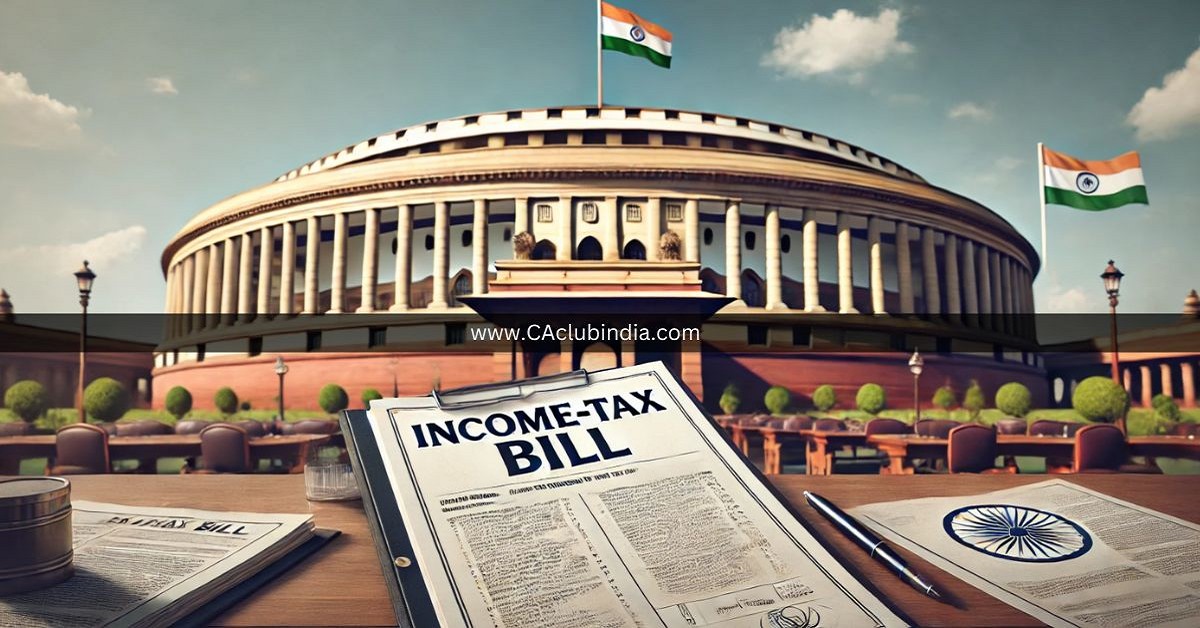The Finance Ministry is unlikely to introduce the much-anticipated new Income-Tax Bill during the upcoming Budget session of Parliament. However, the internal committee led by Chief Income-Tax Commissioner V.K. Gupta, tasked with reviewing the current Income-Tax Act, is expected to submit its report before the presentation of the FY26 Budget, according to officials familiar with the matter.

Drafting and Legislative Process
Sources indicate that while the comprehensive review report will serve as a foundation, the draft Bill will undergo further refinement with inputs from the Ministry of Law. Post-drafting, the legislation is likely to be referred to the Parliamentary Standing Committee on Finance for detailed scrutiny and public feedback.
Announcing the review in her FY25 Budget speech, Finance Minister Nirmala Sitharaman highlighted the goal of making the Income-Tax Act concise, lucid, and easier to understand. She emphasized that the overhaul aims to reduce disputes and litigation while enhancing tax certainty for taxpayers. The Minister had stated that the review would be completed within six months.
Key Recommendations Under Review
The V.K. Gupta Committee is considering multiple structural reforms to simplify tax procedures and reduce compliance burdens:
- Simplification of TDS and TCS Systems: Currently, the Tax Deduction at Source (TDS) and Tax Collection at Source (TCS) mechanisms are governed by over 71 sections, leading to procedural complexity. The committee is exploring a radical approach introducing a comprehensive Schedule of Rates similar to the Customs Tariff Act. This reform aims to replace the existing scattered provisions, thereby reducing litigation and enhancing transparency.
- Elimination of Redundant TDS Certificates: With the availability of Form 26AS as a comprehensive digital record of tax deductions, the issuance of physical TDS certificates has become outdated. Eliminating this requirement is expected to significantly reduce the compliance burden for tax deductors.
- Consolidation of Penalty Provisions: Penalty provisions under the current Act are dispersed across 45 sections, often leading to confusion and disputes. The committee may propose consolidating these provisions into two or three sections, making penalties easier to understand and implement.
Expert Opinions and Next Steps
To ensure the legislation addresses stakeholder concerns, experts recommend implementing a robust public consultation process before presenting the draft in Parliament. A former member of the Central Board of Direct Taxes (CBDT) emphasized that public participation would help fine-tune the proposals and prevent future legal ambiguities.
Additionally, officials revealed that 22 specialized sub-committees have been formed to analyze various aspects of the Act, further underscoring the depth of the review process.
With the Gupta Committee’s report expected soon, the Finance Ministry’s intent to modernize and streamline the Income-Tax Act marks a significant step toward achieving a more transparent, litigation-free tax regime. However, stakeholders may have to wait beyond the upcoming Budget session for the formal introduction of the new Bill in Parliament.







 CAclubindia
CAclubindia
